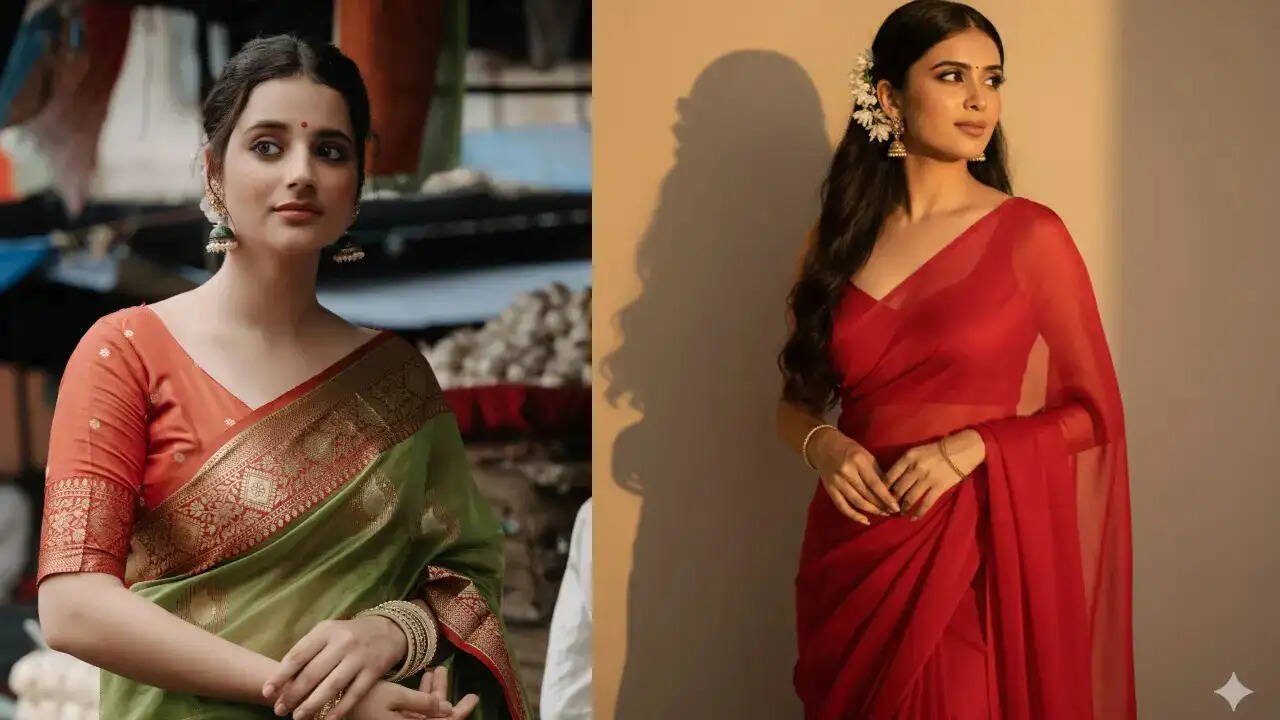It began with chiffon sarees, retro filters, and golden-hour glows. Now, Instagram’s latest obsession—the Gemini AI saree trend—turns ordinary selfies into nostalgic ’90s Bollywood-style portraits.
The tool, powered by Google Gemini Nano Banana, has made timelines look like a mashup of Yash Raj Films’ archives and Pinterest mood boards.
If it feels like déjà vu, that’s because the internet has a history of falling for these AI makeovers. From ChatGPT-fuelled experiments to TikTok and Instagram’s Studio Ghibli filter that turned photos into anime stills, every few months a new trend takes over, equal parts dazzling and uncanny.
The saree edits are undeniably eye-catching — billowing drapes, textured backdrops, cinematic grain. But with the wow factor comes unease.
Take the case of content creator Jhalak Bhawnani. In a now-viral reel, she described how Gemini’s saree version of her photo revealed a mole on her arm — a detail true to her but not visible in the original image she uploaded.
“I generated my image, and I found something creepy,” she said in her post. “A trend is going viral on Instagram where you upload your image on Gemini with a prompt, and Gemini converts it into a saree… I tried it last night, and I found something very creepy about it.”
For many, her experience confirmed fears about AI “knowing too much”, raising questions about privacy, inference, and how much data is being picked up from seemingly harmless uploads.
Adding fuel to the debate is another emotional AI trend circulating on social media — users posting images of themselves hugging their 10-year-old selves.
Experts, too, are weighing in. IPS officer CV Sajjanar has already warned users to be cautious: “Be careful with trending topics on the internet! Falling into the trap of the ‘Nano Banana’ craze can be risky. Sharing personal information online can lead to scams. With just one click, the money in your bank accounts can end up in the hands of criminals,” he noted in a public advisory.
The Gemini AI saree trend is hardly the first time digital culture has embraced aesthetics with underlying risks. From the AI Yearbook Challenge that turned selfies into ’90s-style portraits to AI Time Travel filters that aged people into Victorian or Renaissance characters, each wave of virality has brought both joy and concern.
More recently, TikTok and Instagram saw the rise of the Studio Ghibli AI trend, where users’ photos were transformed into dreamy, anime-style stills inspired by Hayao Miyazaki’s films.
Before that, the AI Pixar Filter gave people Disney-like avatars, while the AI Barbie Selfie Generator had timelines flooded with pink, poster-ready portraits during the Barbie movie release.
In many ways, the trend is a double-edged sword. On one hand, it taps into the collective nostalgia of Bollywood and Indian fashion; on the other, it raises questions about privacy, ownership, and how much of ourselves we’re handing over to algorithms in the name of fun.
For now, the conversation online is split. Some hail the Gemini AI saree edits as harmless entertainment and a way to reimagine themselves in another era, while others warn it’s yet another reminder that in the age of AI, even nostalgia comes with fine print.






















